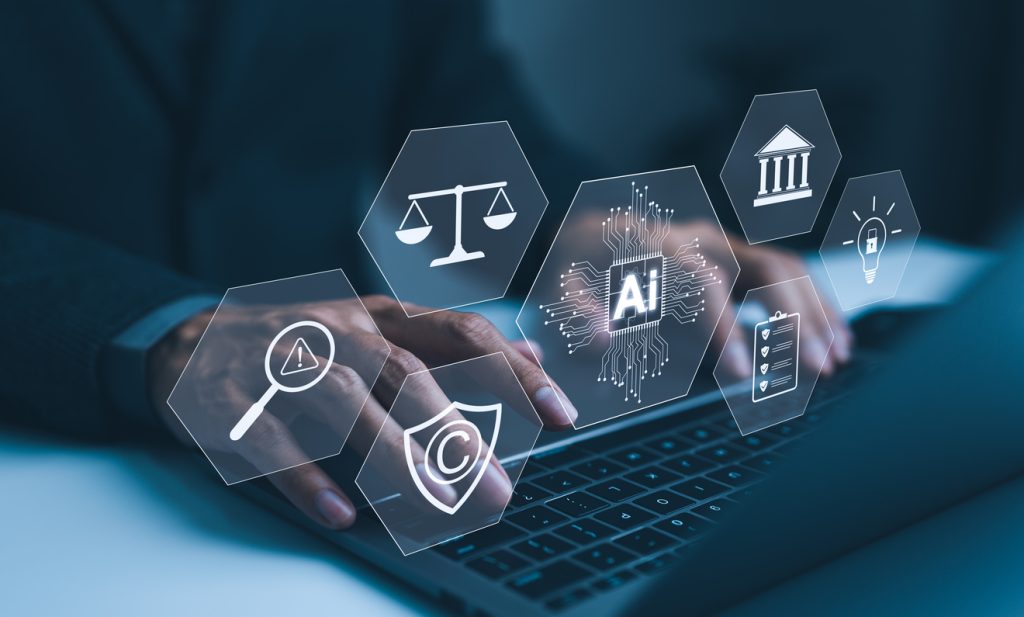Lawyers and Law Firms Embrace AI: Navigating the Future of Legal Work
Artificial Intelligence (AI) is rapidly becoming a transformative force in the legal industry, influencing everything from document drafting to client relationship management. Yet, the embrace of AI in law firms has sparked a mix of excitement and caution. Law firms are at a crossroads: they must choose how to integrate AI tools into their workflows or risk being left behind. As AI tools, such as generative AI (GenAI) and chatbots like ChatGPT, become increasingly sophisticated, the legal profession faces a critical moment to define the role of technology in its future.
The Rise of AI in Law Firms
AI has quickly proven its worth in the legal sector, enhancing productivity and efficiency. According to a report by Thomson Reuters, 70% of corporate legal professionals have used AI to improve workflow, automate repetitive tasks, and optimize legal research. Many law firms in the UK, such as Hill Dickinson, are beginning to experiment with AI technologies to complete tasks like drafting contracts and conducting legal research.
However, this swift adoption has led to concerns about data security and the accuracy of AI-generated results. Hill Dickinson, which employs over a thousand staff, recently took the drastic step of blocking general access to popular AI tools, such as ChatGPT and Grammarly, after a significant rise in usage. The firm cited concerns over AI tools being used in ways that were not in line with its data protection policies, particularly the uploading of sensitive client information. The company’s chief technology officer noted over 32,000 visits to ChatGPT and 50,000 to Grammarly within a short span, signaling a shift in how AI was being utilized in the workplace.
Striking the Right Balance: Embracing AI Responsibly
While some law firms are placing restrictions on AI tools, others see them as a key to improving their services. Hill Dickinson, in a follow-up statement, emphasized its commitment to embracing AI positively. The firm stated that it would only approve access to AI tools on a request basis, ensuring that usage complies with its policies and protects client confidentiality.
Law Society of England and Wales CEO, Ian Jeffery, echoed this sentiment, noting that AI can revolutionize legal services, but it needs to be used responsibly with proper human oversight. Similarly, the Solicitors Regulation Authority cautioned that there is still a significant skills gap in the industry regarding digital tools, which could pose risks if AI technologies are implemented without sufficient understanding.
Legal software provider Clio’s September survey of 500 UK solicitors revealed that 62% expect AI usage to rise in the coming year, particularly for contract analysis, legal research, and document drafting. Yet, the widespread adoption of AI still faces a barrier of skepticism in certain circles. Many law firm lawyers remain hesitant, waiting for AI tools to become more mainstream before fully integrating them into their practices.
AI’s Role in Law Firm Operations: Leading Innovation or Following the Trend?
2025 will likely be a pivotal year for law firms as they decide whether to lead in AI adoption or follow clients’ demands. Some law firms are already well down the path of implementing AI tools, with in-house legal departments leveraging the technology to improve productivity. Meanwhile, clients are increasingly aware of AI's capabilities and are placing pressure on law firms to incorporate it into their operations.
One notable case was shared by a managing partner at a midsize law firm, who recounted a client’s request to replace all paralegal work with AI, refusing to pay for paralegal time. The managing partner faced a dilemma: how to respond to a client that misunderstood the current capabilities of GenAI. The partner’s solution was to educate the client about AI’s limitations and present alternative solutions that leveraged the technology in a more realistic and cost-effective way.
As clients push for AI-driven changes, law firms will need to manage these expectations carefully. Rather than reacting to clients' demands, firms should take the lead by proactively engaging clients in discussions about how AI can enhance legal services. This approach allows law firms to remain competitive while ensuring that the tools are used responsibly.
A Collaborative Future for AI in Law
Rather than taking a passive approach, law firms can capitalize on their role as advisors by guiding clients through the integration of AI. This proactive stance can help shape the future of legal services in a way that benefits both the firm and the client. By working together to establish AI use cases and best practices, law firms can ensure that they are at the forefront of a technology-driven revolution in the legal sector.
Firms can begin by selecting key clients to pilot AI-driven solutions and using those experiences to refine their offerings. This targeted approach enables law firms to develop a robust AI strategy while ensuring that clients are aligned with the changes. As firms gather feedback from these early implementations, they can expand their AI usage across their client base, improving the overall delivery and pricing of legal services.
Moving Forward: The Time for Action Is Now
For law firms, the time to wait and see how AI unfolds in the legal sector is quickly running out. The changes that AI will bring to the profession are inevitable, and law firms must take an active role in shaping them. Whether by working closely with clients to implement AI solutions or by developing internal policies that guide the responsible use of technology, law firms have a unique opportunity to lead the way.
AI’s potential to transform the legal industry is enormous, but so are the risks of falling behind. 2025 will be a year of action, and law firms that take the first steps now will be better positioned to succeed in a future defined by AI. Those that delay may find themselves playing catch-up, as clients set the agenda and shape the industry’s evolution.
Ultimately, the question is not whether AI will change the legal profession—it is how law firms will adapt to those changes and what role they will play in the AI-driven future of law. The path forward is clear for those willing to embrace it.






























